How are markets responding to Kwasi Kwarteng’s mini-Budget? A sharp fall in the pound today has plenty of critics arguing that the tax-slashing announcements have already proved a failure.
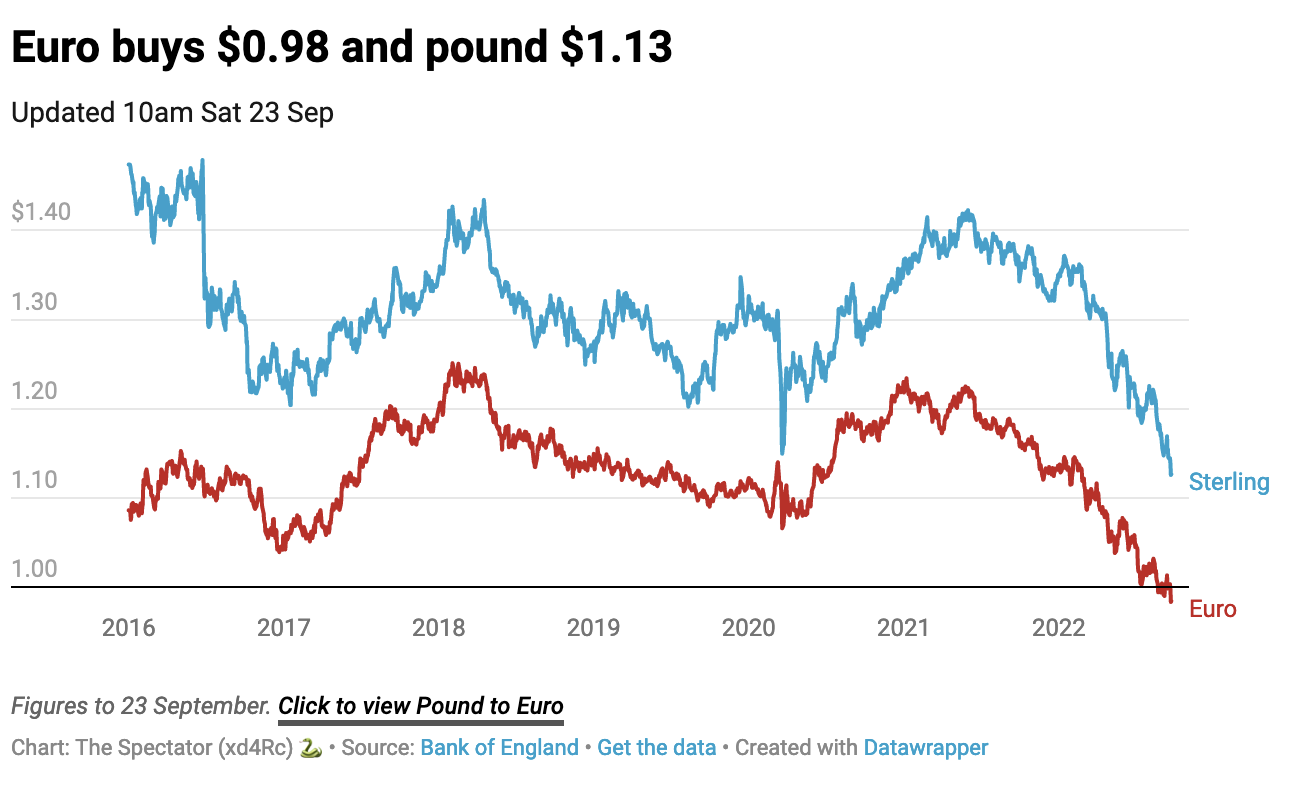
Sterling fell this afternoon to $1.09, bringing the currency to another 37-year low against the dollar. This is more than a 3 per cent dip in just one day. The euro took a hit too, but a smaller one at 1.5 per cent. It’s difficult to separate this new record low from today’s announcements – but also near impossible to draw direct correlation, as the pound and euro have both been in freefall against the dollar for weeks now. With the pound already hovering at 1985-lows mid-month, it’s more difficult to say whether today’s currency shocks are a direct rebuke of Treasury policy.
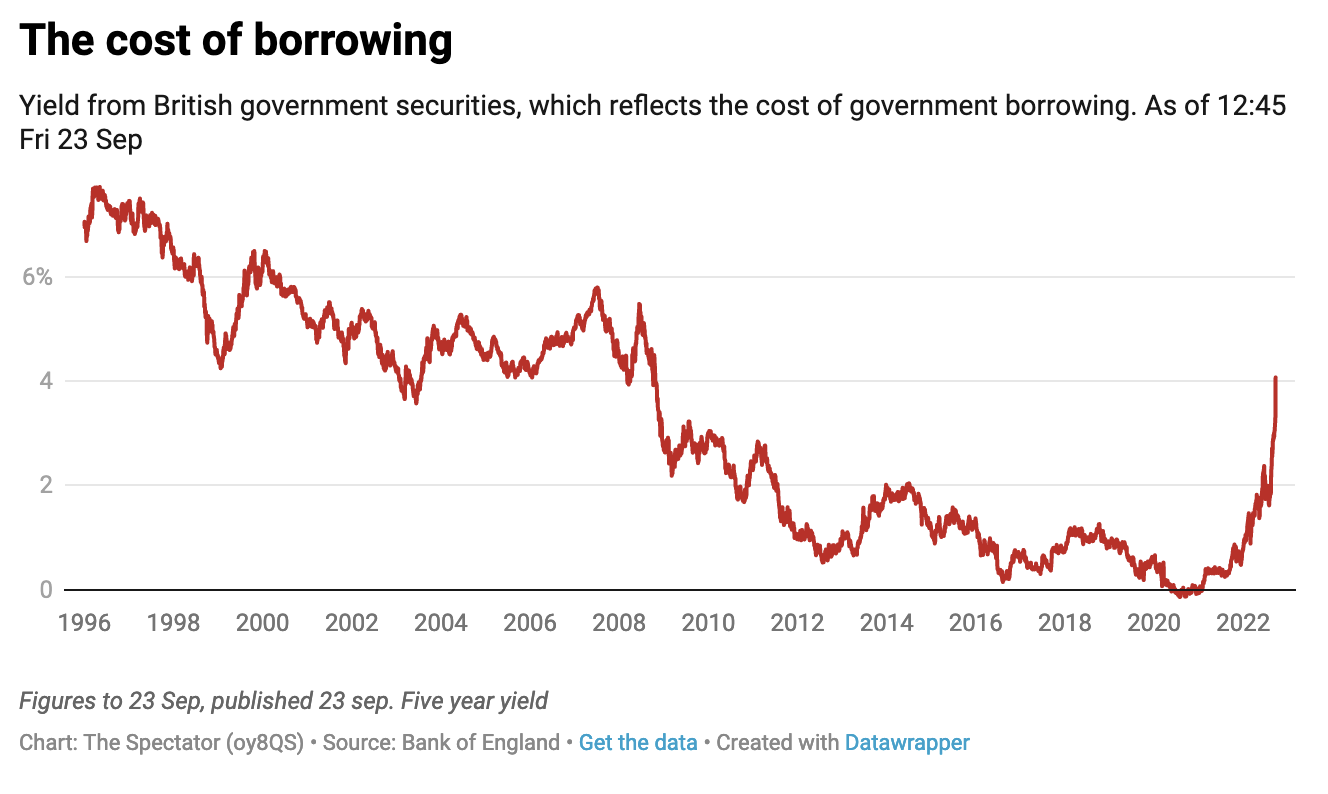
This is where the gilt market is perhaps providing some more insight. According to Bloomberg, the yield on UK five-year bonds shot up 57 basis points, ‘set for the biggest increase ever’ in the hours after Kwarteng’s speech. They closed the day at 4 per cent, up from 3.5 per cent at the start. It’s difficult not to interpret this as a direct rebuke of the £45 billion worth of tax cuts and the £70bn in borrowing this financial year that were delivered without an utterance about spending restraint or efficiency giants (Kwarteng insisted the details of a ‘responsible fiscal approach’ would come ‘in due course’).
It is not exactly the ‘crash’ or ‘meltdown’ of the gilt market as it’s been described today by many a commentator: but it is an indication that the markets are nervous about this Conservative government’s new, cosy relationship with the deficit.
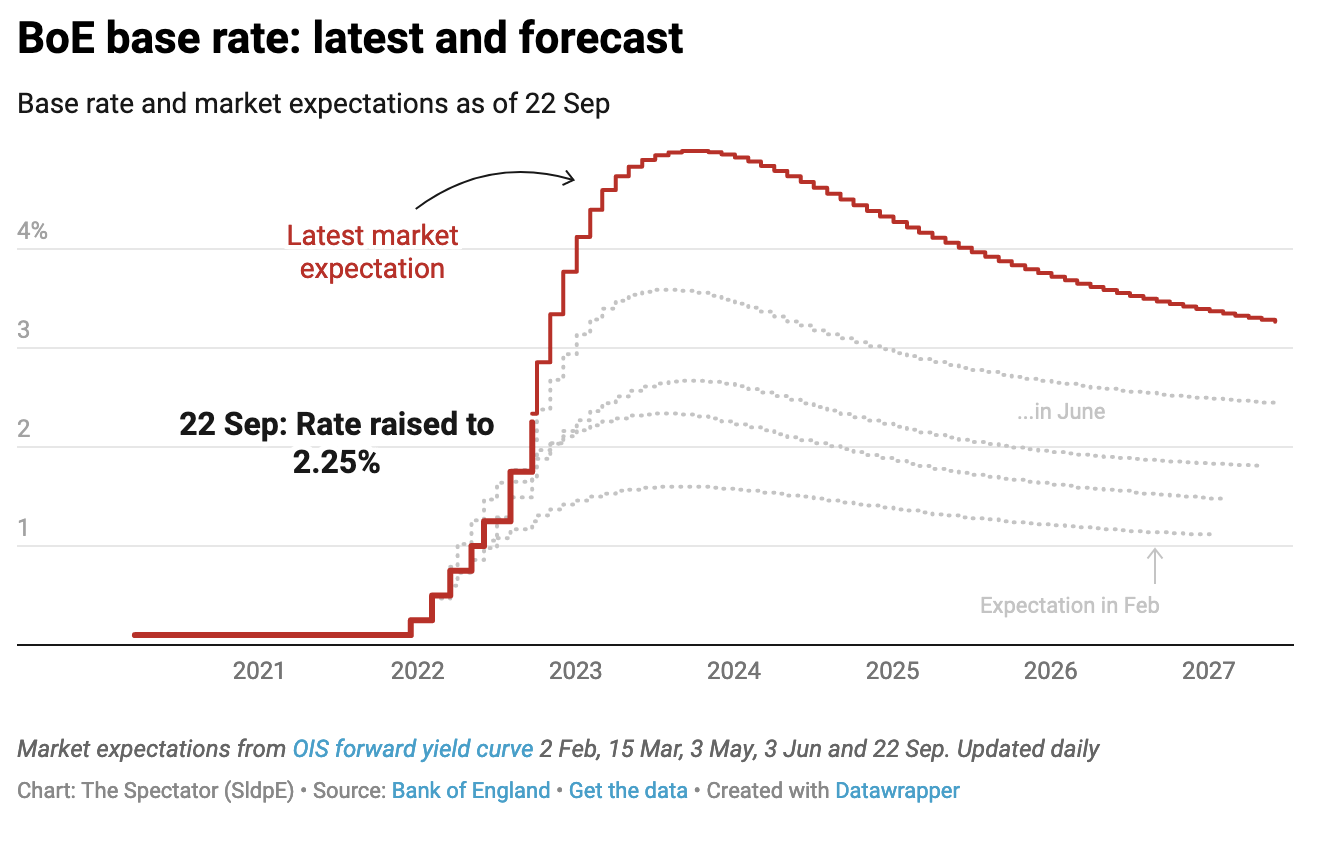
There are multiple factors at play here, not least the fact that other country’s gilt markets have risen today, in the United States as well – an indication that markets are bracing for recession. In addition, interest rates are now expected to rise to 5 per cent, up from 4.75 per cent yesterday, when the Bank of England went for its seventh consecutive rate rise, and its second rise of 0.5 percentage points. This latest rise, combined with Truss and Kwarteng making good on major fiscal loosening today, has the consensus thinking that interest rates are more likely to keep rising now (a key pillar of Trussonomics, which the PM and her new government have been angling for, whilst keeping a clear line between politicians and central bankers, who ultimately have independence in these decisions).
By next week, we could be moving closer towards meltdown territory, or market fluctuations could have started to settle, making today’s movements appear a blip. But it seems today’s mini-Budget did give the markets a bit of a spook: the question now is how quickly that dissipates.
Got something to add? Join the discussion and comment below.
Get 10 issues for just $10
Subscribe to The Spectator Australia today for the next 10 magazine issues, plus full online access, for just $10.


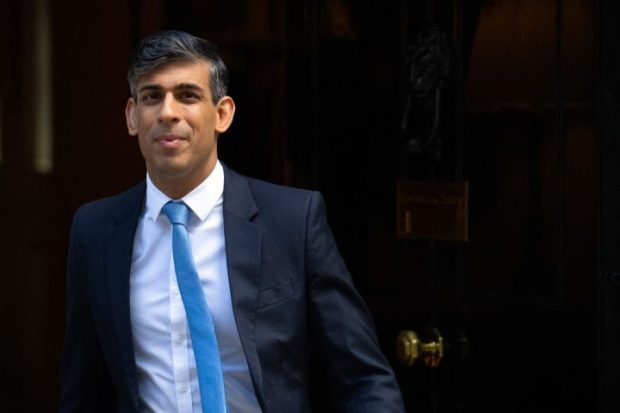
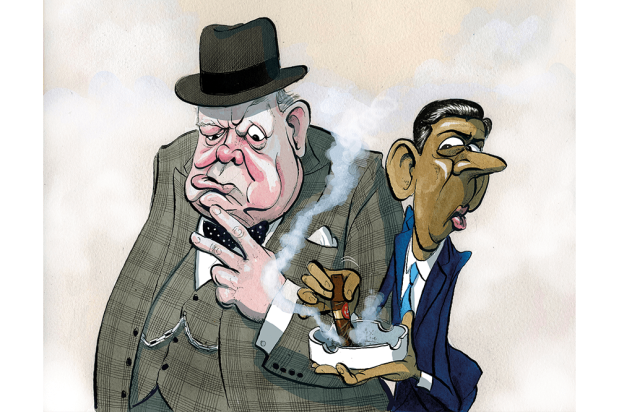
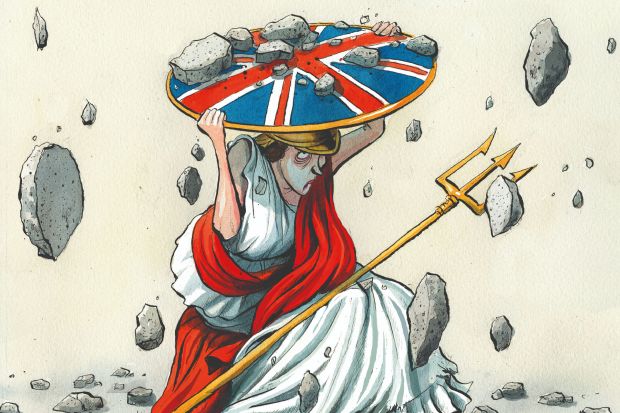
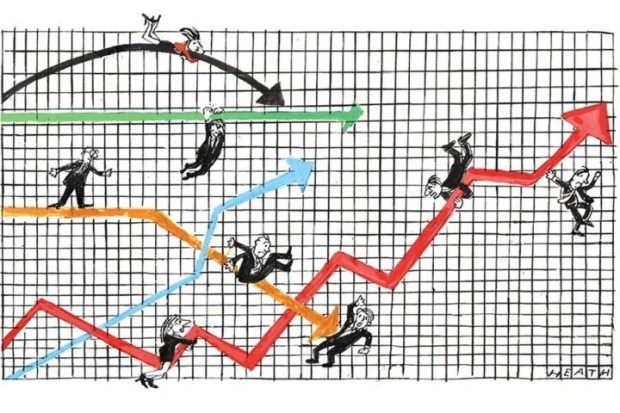
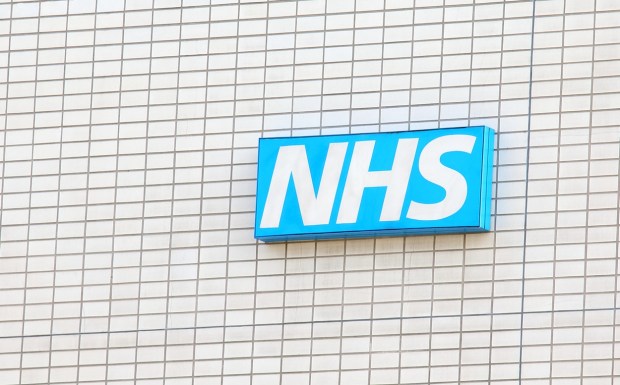













Comments
Don't miss out
Join the conversation with other Spectator Australia readers. Subscribe to leave a comment.
SUBSCRIBEAlready a subscriber? Log in